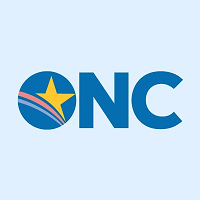 By Ashley Hain and Robert Anthony, ONC
By Ashley Hain and Robert Anthony, ONC
LinkedIn: Ashley Hain
LinkedIn: Robert Anthony
LinkedIn: ONC
ONC has hit a new milestone in advancing interoperability across the care continuum. A new series of voluntary tests to support standards-based application programming interfaces (APIs) leveraging Health Level Seven® (HL7®) implementation specifications developed via the Da Vinci project and the CARIN Alliance are now available in the ONC-developed Inferno testing tool. The tests are open source, with the source code freely available for use by the public on GitHub.
This new set of tests focus on:
- Accessing payer drug formulary information as defined in the HL7 Da Vinci Payer Data Exchange (PDEX) US Drug Formulary implementation guide (v2.0.1)
- Accessing payer insurance plan network directory information as defined in the HL7 Da Vinci PDEX Plan Net implementation guide (v1.1.0)
- Consumer access to their digital health information from a payer via a third-party application as defined in the HL7 CARIN Consumer Directed Payer Data Exchange (CARIN IG for Blue Button®) implementation guide (v1.1.0, v2.0.0)
We encourage health IT developers, the standards community, and other interested parties to use these tests to enhance the interoperability of health IT and facilitate further advancement of the relevant implementation guides. We anticipate this release will support testing opportunities at future HL7 Connectathons.
These tests are written using the Inferno Framework and are available on ONC’s hosted instance of Inferno at Inferno.HealthIT.gov. We encourage users to submit feedback on these test kits via GitHub or the Health IT Feedback and Inquiry Portal. Additional information about using the Inferno Framework and writing your own Fast Healthcare Interoperability Resources® (FHIR®) tests can be found in the Inferno documentation.
We are excited to provide the health IT community with this testing opportunity and plan to release additional FHIR API test kits in the future. ONC will continue to work together with federal partners, SDOs, and the healthcare community to address key challenges and gaps to advance interoperability for a Nationwide health IT infrastructure.
We look forward to additional industry engagement and support to advance the development, testing, and implementation of standards that can be used to improve health data interoperability.
This article was originally published on the Health IT Buzz and is syndicated here with permission.
